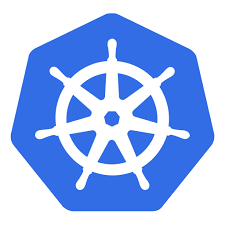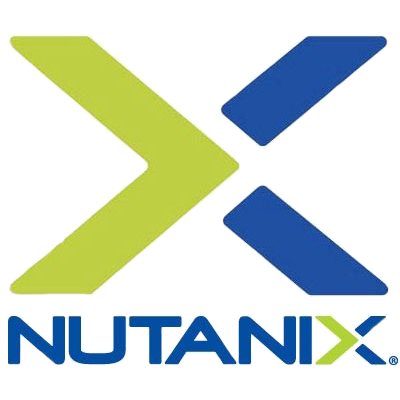- person Penulis:
-
 Dimas Maryanto
Dimas Maryanto
PT. Tabeldata Informatika
- account_balance_wallet Donasi via:
- Saweria a/n Dimas Maryanto
- lock_open Join Premium Members:
- Udemy.com
-
Daftar Materi
-
1. Pengenalan PostgreSQL 5
-
2. Getting started 8
-
1. Overview Installing PostgreSQL
2. Install PostgreSQL for Windows users
3. Install PostgreSQL for Mac users
4. Install PostgreSQL for Linux Ubuntu users
5. Install PostgreSQL using Docker
6. Using psql as PostgreSQL editor
7. Using pgAdmin4 as PostgreSQL editor
8. Using thirdparty Editor untuk PostgreSQL Server
-
3. SQL - Select Statement 16
-
1. Overview SQL Select statements
2. Basic SQL Select statements
3. Build-in Operators
4. Build-in Functions
5. Filtering data with WHERE clause
6. Sorting rows using ORDER BY clause
7. Limit dan Offset rows
8. Time your practice (part 1)
9. Deep dive into Select Statements
10. Single Row / Group functions
11. Joined Tables
12. Queries inside a query (subquery)
13. Conditional Expressions
14. Combining Queries (UNION, INTERSECT, EXCEPT)
15. WITH Queries (Common Table Expressions)
16. Time your practice (part 2)
-
4. SQL - Data manipulation 10
-
1. Overview of Data Manipulation Language (DML)
2. Basic Create, Update, Delete statement
3. Deep dive into INSERT Statement
4. Deep dive into UPDATE Statement
5. Deep dive into DELETE statement
6. Prepared Statement in SQL
7. Cleanup Data from Table
8. Time your practice (part 3)
9. Overview of Concurrency Control
10. Getting started with Transaction Control (TCL)
-
5. SQL - Data definition (Tables)
- Materi: belum tersedia...
-
6. Study Kasus: Database design (Mapping)
- Materi: belum tersedia...
-
7. SQL - Indexes
- Materi: belum tersedia...
-
8. SQL - Users Management
- Materi: belum tersedia...
-
9. Type Conversion
- Materi: belum tersedia...
-
10. Query Performance Tips
- Materi: belum tersedia...
-
11. Study Kasus: Tokopedia clone
- Materi: belum tersedia...
-
12. Server Administration
- Materi: belum tersedia...
-
13. Pg/PL SQL
- Materi: belum tersedia...
-
14. Study Kasus: Backend engine
- Materi: belum tersedia...
- Lastest Posts
-
 09 Apr 23
Working with Deployment object
09 Apr 23
Working with Deployment object
-
 26 Feb 23
Study cases: Microservice apps (...
26 Feb 23
Study cases: Microservice apps (...
-
 05 Feb 23
Welcome to the Nutanix HCF (Hybr...
05 Feb 23
Welcome to the Nutanix HCF (Hybr...
-
 04 Feb 23
Silabus SRE - Nutanix AHV: Pemul...
04 Feb 23
Silabus SRE - Nutanix AHV: Pemul...
-
 17 Jan 23
What is Workload Resources?
17 Jan 23
What is Workload Resources?
-
 17 Jan 23
Overview Kubernetes Workloads re...
17 Jan 23
Overview Kubernetes Workloads re...
-
 15 Jan 23
Getting started with Transaction...
15 Jan 23
Getting started with Transaction...
-
 14 Jan 23
Overview of Concurrency Control
14 Jan 23
Overview of Concurrency Control
-
 14 Jan 23
Time your practice (part 3)
14 Jan 23
Time your practice (part 3)
-
 08 Jan 23
Cleanup Data from Table
08 Jan 23
Cleanup Data from Table
Overview of Object Relational Database Management System (ORDBMS)
Hai semuanya, di materi kali ini kita akan membahas tentang Object Relation Management System atau singkatannya ORDBMS. Diantaranya
- What is Object-Relational Database Management System?
- Comparison to RDBMS
Ok langsung aja kita bahas materi yang pertama
What is Object-Relational Database Management System?
An object–relational database (ORD), or object–relational database management system (ORDBMS), is a database management system (DBMS) similar to a relational database, but with an object-oriented database model: objects, classes and inheritance are directly supported in database schemas and in the query language. In addition, just as with pure relational systems, it supports extension of the data model with custom data types and methods.
In object–relational databases, the approach is essentially that of relational databases: the data resides in the database and is manipulated collectively with queries in a query language; at the other extreme are OODBMSes in which the database is essentially a persistent object store for software written in an object-oriented programming language, with a programming API for storing and retrieving objects, and little or no specific support for querying.
Comparison to RDBMS
An RDBMS might commonly involve SQL statements such as these:
CREATE TABLE Customers (
Id CHAR(12) NOT NULL PRIMARY KEY,
Surname VARCHAR(32) NOT NULL,
FirstName VARCHAR(32) NOT NULL,
DOB DATE NOT NULL # DOB: Date of Birth
);
SELECT InitCap(Surname) || ', ' || InitCap(FirstName)
FROM Customers
WHERE Month(DOB) = Month(getdate())
AND Day(DOB) = Day(getdate())In an object–relational database, one might see something like this, with user-defined data-types and expressions such as BirthDay():
CREATE TABLE Customers (
Id Cust_Id NOT NULL PRIMARY KEY,
Name PersonName NOT NULL,
DOB DATE NOT NULL
);
SELECT Formal( C.Id )
FROM Customers C
WHERE BirthDay ( C.DOB ) = TODAY;The object–relational model can offer another advantage in that the database can make use of the relationships between data to easily collect related records.

